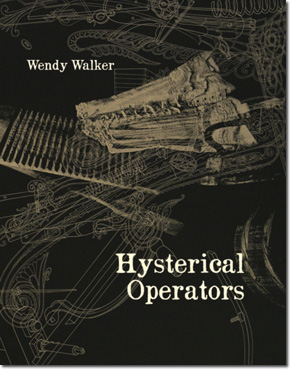
$10
Hysterical Operators
by
In 1991 Wendy Walker began a novel on the case of Constance Kent, a girl accused of murdering her three-year-old half-brother. Many aspects of the case attracted her, not least the fact that Constance confessed to a crime it is not at all sure she committed. In the course of writing, however, Walker came to feel that she should not exploit these sensational circumstances for a fiction; that it would be exploitative to use her own fiction to overturn Constance’s. She turned instead and wrote “a very different kind of book,” Blue Fire (Proteotypes, 2009), a polyphonic experiment in poetic nonfiction that asks the reader to hear many voices not subsumed within the author’s own, to consider the complex ways in which the story echoes and informs other contemporary stories.
Hysterical Operators, second in our Libellulae series, is the only surviving piece of that abandoned novel. It relates the nighttime tryst in which the father of the little boy, the victim in the case, visits his son’s nanny in the nursery where the boy was sleeping. In a dialogue of contrasting modes, Mr. Kent, the inspector of factories, speaks in an assemblage of technical language drawn from Andrew Ure’s Philosophy of Manufactures (1835), and the nursemaid replies with floating fragments of Victorian melodrama.
This fragment takes its place in the series of “critical fictions” that Walker has been working on since 1993. Many of them as visual as verbal, their purpose is to find a non-discursive way to bring out the truth of a text within its own terms and using its own language.